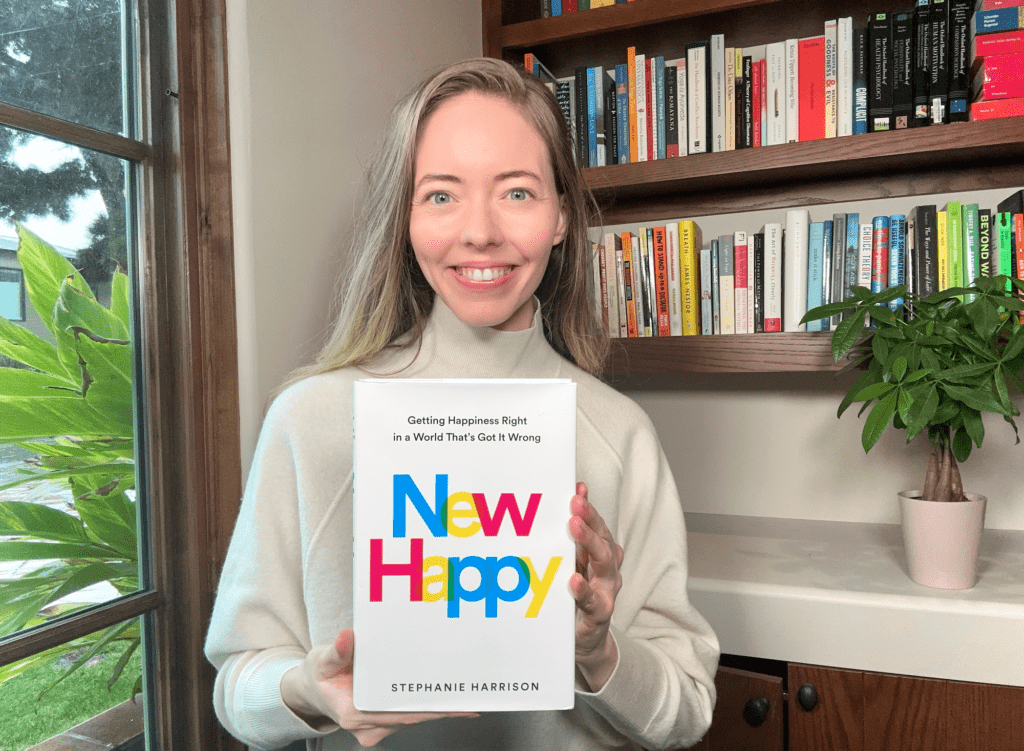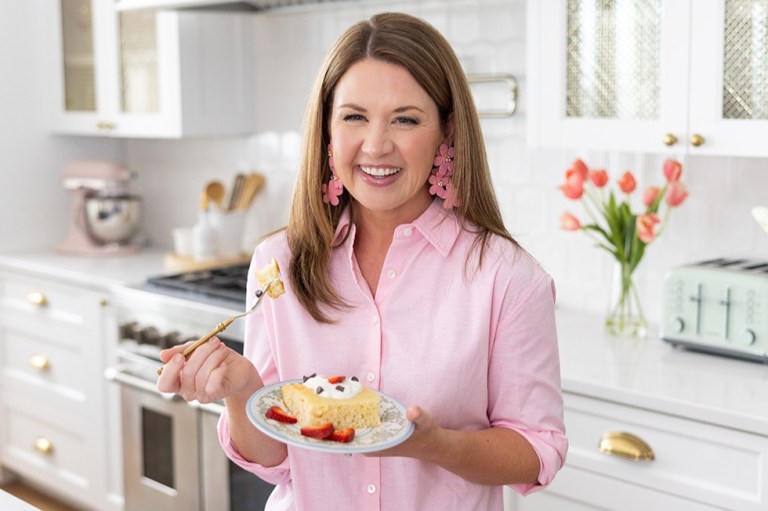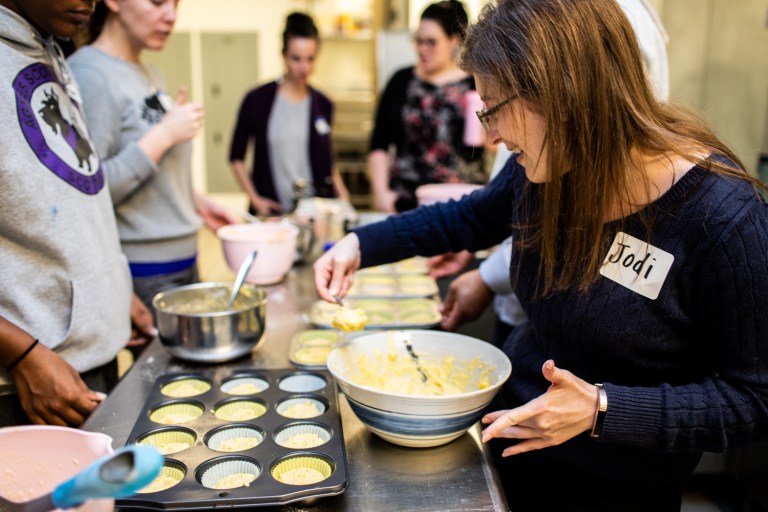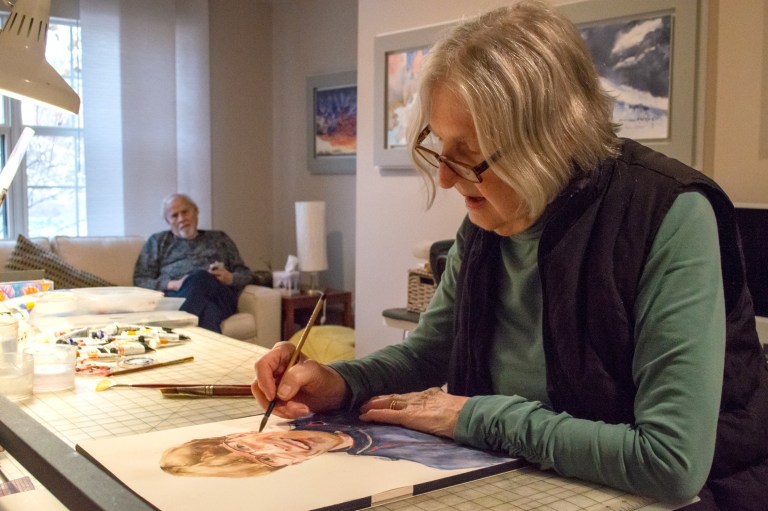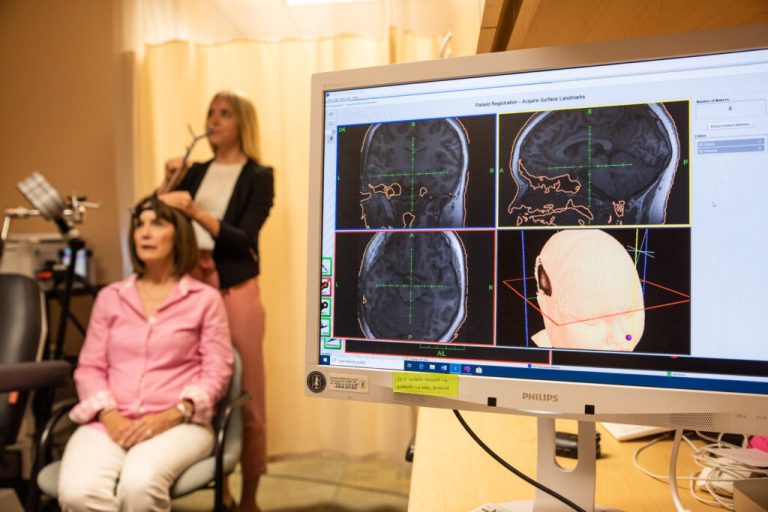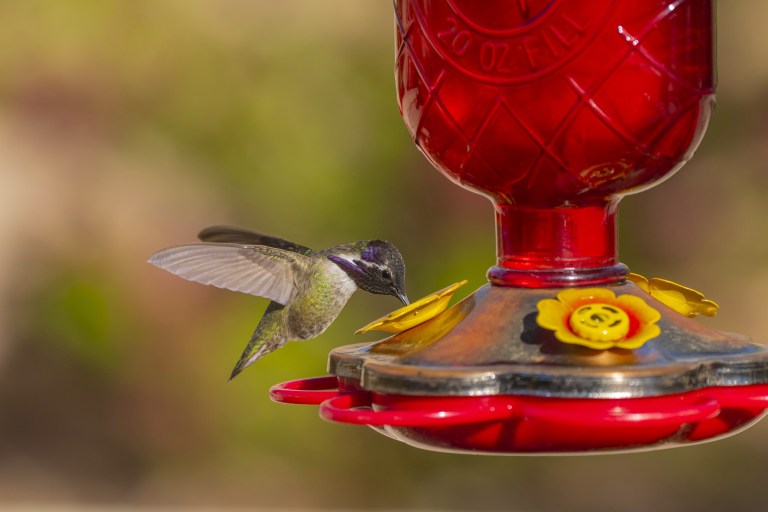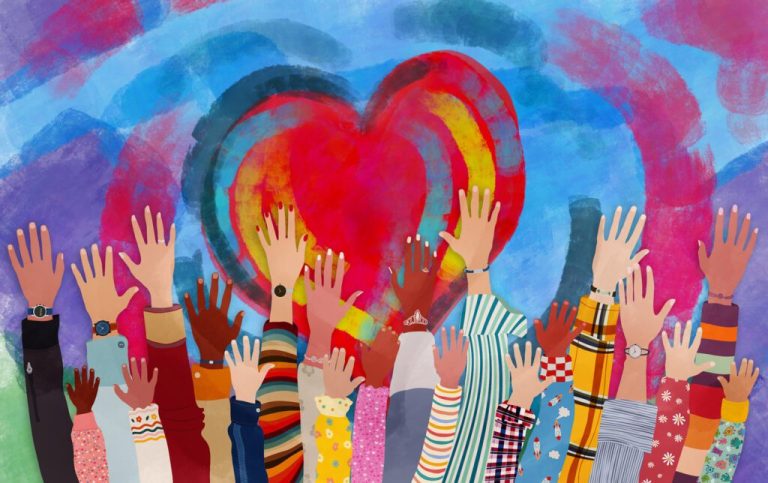This interview has been lightly edited for length and clarity
Like many paths to revelation, Stephanie Harrison’s started at a low point. In 2013, the author found herself “deeply, desperately unhappy,” she writes in her debut book, New Happy: Getting Happiness Right in a World That’s Got It Wrong, out May 14. She’d been doing everything she thought she should — working hard at the big job, living in the nice New York City apartment — and yet contentment consistently felt just out of reach.
At that nadir, as Harrison cried to herself in her bedroom, she experienced a surprising emotion: curiosity. She began questioning her values, and subsequently made changes in her life to align with her emerging belief system, including earning a master’s degree in positive psychology. By 2018, she’d synthesized her ideas into a philosophy she called “New Happy,” and created a weekly newsletter that has since turned into a community of nearly 1 million people.
The crux of Harrison’s perspective is simple: To truly be happy, you need to help others be happy. She recently spoke to Nice News about her work via email.
Intellectually, people may already understand the tenets of New Happy. You write that they can be found in Buddhism, stories like A Christmas Carol, and the teachings of Martin Luther King Jr. So why does “Old Happy” seem so pervasively ingrained in us?
Whenever I tell people about New Happy, they say things to me like, “Yes! That feels so right,” or “I know deep down that this is what matters most.” But they also share that it has been really hard for them to put these tenets into practice. There are a few important reasons for that.
First, Old Happy conditioning runs deep. From a very early age, we have been conditioned into this set of beliefs that guides our choices and behavior. These beliefs are rarely questioned or challenged, leaving us to believe that they are “the truth.”
Second, Old Happy has been invisible. We haven’t had a name that we can use to describe this value system and the way that it affects us. Because of that, most people blame themselves for their unhappiness. They think that there’s something wrong with them — really, what’s wrong is the messages that we receive from our culture! (Unfortunately, too, the more we blame ourselves, the more ingrained Old Happy becomes; it reinforces the belief that we’re not good enough as we are.)
Third, Old Happy feels inevitable. Even if you can name it, how on earth do you move past it? And what should you be seeking out instead? It’s all too easy to default to what we know, if we’re not shown the potential for what’s possible and given a set of instructions that helps us to get there.
In my book, I try to address each of these points, giving the reader a very practical and step-by-step guide to unwinding Old Happy and experiencing true, lasting happiness. It’s the manual that I wish I had had when I was younger.
A huge emphasis is placed on individualism in the U.S. How does that contribute to the Old Happy worldview?
Individualism is a core contributor to Old Happy. It has made us forget that, even though we are individuals, we are also connected to other people and to the world around us.
When you are separate from something, you don’t have to care about it. Over time, this turns into a culture where everyone is compelled to look out solely for themselves, motivated to prioritize their own wants above others’ needs, taught to see life as a competition, and learns to treat other people as a means to an end.
This culture denies the deepest truth of our species: We need one another not just to survive, but also to thrive. Being separate means that you have to carry all of your burdens alone and that there is no support system to pick you up when you’re struggling. Being separate limits your ability to develop and deepen relationships with others, which is our greatest source of happiness. And being separate even ends up separating you from your own self, because it is our very nature to be connected to one another; our bodies and minds thrive when they are in relationship, and suffer when they are not.
I’ve come to define happiness as the state of being when you are connected to yourself, others, or the world. That’s why the individualistic belief that we are separate cuts us off from happiness.
New Happy doesn’t totally eschew the self, though. Embracing our individuality just looks very different. What role does it play?
It’s a wonderful and important thing to be your own person. What matters is how we see that person: Do we believe that we are standing alone and separate from others, or do we believe that we are connected to others and engaged in, as Martin Luther King Jr. said, “an inescapable network of mutuality”?
This is the shift that we need to make, that of embracing our interdependence: where we see that we are a part of a greater whole, where we empower each person to offer what they can so that everyone gets what they need. This is the culture that will help us all to experience true happiness.
Your individuality helps to make this shift possible. You have many wonderful and unique qualities that make you you. I call these your gifts. Each of us has three types of gifts: humanity (who you are), wisdom (what you’ve learned), and talent (what you can do). When you use these gifts to serve others, it benefits you; you feel energized, purposeful, and happy. At the same time, someone else is benefitting from your gifts, too; their needs were fulfilled thanks to you.
There are billions of people in our world, each of whom have something important to offer. If we started to live in this way, no one would ever have to go without what they need. We would be able to create a world where everyone was able to be happy.
You point out that, despite popular belief, “do-gooders” aren’t exceptions to the human race; they’re actually just more attuned to their needs. Could you expound on that?
Old Happy culture teaches us to view helping others as optional, something that we do after we’ve satisfied our own needs or acquired everything that we want for ourselves. But fulfilling our personal needs is always a work-in-progress, and a human being’s list of personal desires is usually bottomless (as we can see from the behavior of our wealthiest citizens). We can’t wait to help — we need to help now.
Because, as it turns out, helping others helps you! That’s what these do-gooders know. Just like we have a need for shelter and for love, we have a need to go beyond ourselves. Studies show that helping can contribute to not just your mental and emotional health, but your physical health as well.
What’s more, the only reason why any of our other needs are ever satisfied is because of the efforts of other people. Who built your house? Where did your food come from? Who gave you a hug today? Other people.
We have lost sight of our need to give, and because of that, we are failing to recognize that the only way that anyone can ever live a good life is because of the efforts of other people. What will happen if we continue to cut ourselves off from this truth? More and more people will have to go without what they need, and more and more people will end up unhappy because they don’t know that their truest fulfillment comes from satisfying others’ needs. Helping is the linchpin that connects your happiness with the happiness of others.
Your book offers practical tools and tips for finding happiness. One of the exercises I’m most excited about implementing is rooted in cognitive behavioral therapy. Would you share a little about “the Breakup”?
The Breakup is one of the most simple and powerful tools that you can use to support your well-being (it’s also one that I personally use every single day). It’s inspired by the work of Albert Ellis, who was the founder of rational emotive behavior therapy. He argued that the reason we suffer is because we are constantly grading our selves based on our behaviors. If you did well in a presentation, then you were worthy as a person; if you bombed it, then you were a disaster. This way of thinking is a part of Old Happy conditioning.
To overcome it, we need to break up who we are from what we do. In this example, you would say to yourself, “I didn’t do very well on that presentation, but I’m still worthy as a person.” Some people think that this is letting themselves off the hook; in fact, research shows that it’s the opposite. When your self-worth is threatened, you often end up behaving in counterproductive and even harmful ways, like lashing out or blaming others for your actions. When you know that your self-worth is not at stake, it makes it far easier to take responsibility, learn from your mistakes, and stay persistent.
I credit this tool with helping me to learn how to be kinder to myself; it’s had a huge impact on my own well-being. I hope you try it for yourself!
In part two of the book you write that “Happiness does not exist in the future.” What do you mean by that?
One of Old Happy’s core lies is the idea that you can achieve your way to happiness. It’s that whisper in your head that says, “Once I get there, I’ll be happy.” We chase promotions, possessions, and power, all believing that they will make us happy. But they don’t. Extensive research has shown that these types of goals do not lead to well-being, and are in fact more likely to lead to ill-being.
If you want to be happy, it’s far better to pursue goals that are aligned with who you really are. These goals are focused on learning, relationships, and contribution. They are not about “getting somewhere” — they’re about the joy that you experience along the way. When you pursue them, you’re focused on taking action in a way that fulfills you and energizes you. That brings you profound happiness, but it also helps you to grow as a person, becoming more and more of yourself with every action that you take. And the more of yourself that you can become, the more you can contribute — a virtuous cycle of growth, generosity, and impact.
As evidenced by the personal examples you give in the book, New Happy isn’t something that we just learn once, and “Tada!” we’re done. You talk about turning off Old Happy autopilot. Is there a way to turn on New Happy autopilot?
It can be so tough to extricate ourselves from Old Happy because we live in a world that is constantly incentivizing it, selling it, and enforcing it. My greatest hope is that this book helps to spark a greater movement, bringing together people who are sick and tired of the way we’re living and who want to build something better. That’s what will help us to turn on New Happy autopilot: gathering people around us who not only encourage us to be who we are, but also create systems that make it easy to get what we need and give of who we are.
I know that, for me, having friends and family who are devoted to living in this way has helped me in so many ways. When I feel like I’ve gotten off track, or forgotten what matters most, they gently remind me and help me to find my way again.
How can the small choices we make in our own pursuit of (New) happiness actually help change the world?
When I was creating this philosophy, what excited me the most was the discovery that when you pursue your own happiness, you’re also creating happiness for other people. (This lies in stark contrast to Old Happy, where your happiness comes at the expense of other people’s happiness.)
You might think that these small choices to help don’t matter. But they do. They positively affect the person who benefits from your gifts: I’m sure we can all remember the moments where someone showed up to support us when we really needed it, and how it transformed our day, week, or month. They ripple outward, with one study showing that people who receive kindness end up paying it forward threefold. And finally, these ripples end up transforming society.
Researchers who study conflict have found that peaceful societies, in part, are created through these small micro-moments of care. Bit by bit, your choices help to make a better, more just, and more compassionate world. You matter more than you will ever know.
